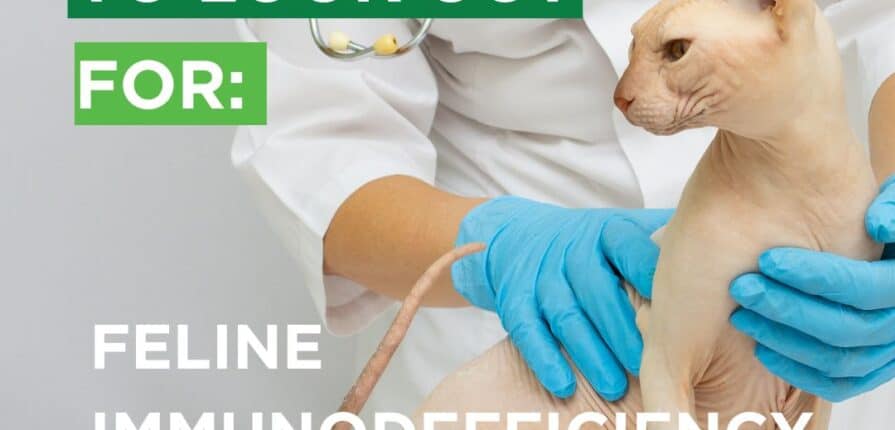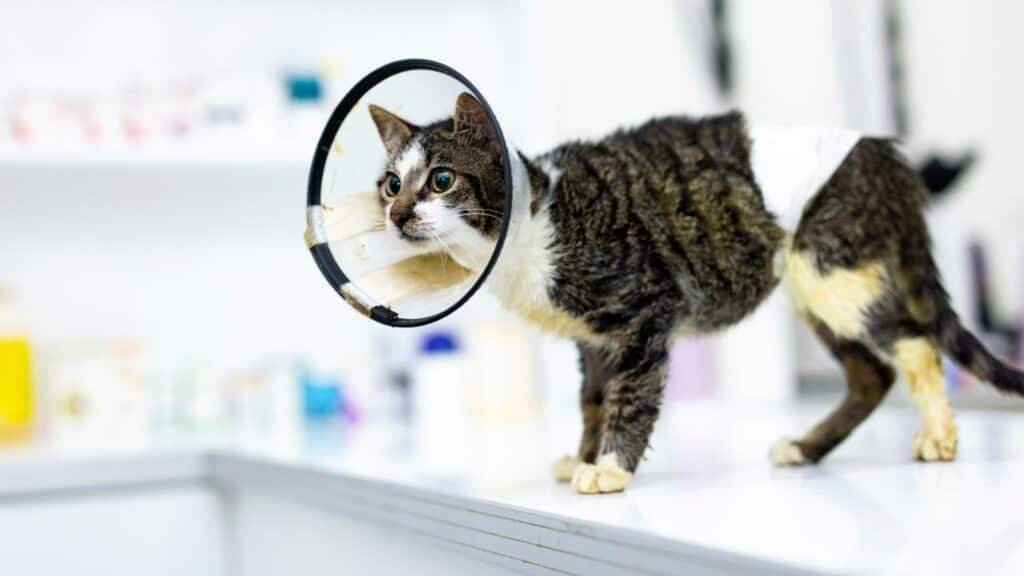What is Feline Immunodeficiency Virus?
Cat parents should be aware of not only the day-to-day health issues they may encounter with their kitties (such as hair balls, not getting enough water). There are also some less common and more unfamiliar health issues that we hope our beloved kitties won’t have to deal with. In the next couple of posts, we will explore some common feline diseases that you may not have heard of, including Feline Immunodeficiency Virus (FIV), Chronic Kidney Disease (CKD), and Feline Infectious Peritonitis (FIP). We hope that by understanding the symptoms and causes of these illnesses, you can help ensure that your cat receives the necessary care and treatment to stay fit, healthy, and happy.
Feline Immunodeficiency Virus (FIV)
- FIV is one of the most common and infectious diseases in cats worldwide, attacking the immune system and leaving cats prone to other infections.
- FIV has three phases of infection: the acute phase, the asymptomatic (or latent) phase, and the progressive phase.
- The best way to prevent FIV in your cat is to prevent them from getting exposed to the virus. This is a reason to keep your cat safely indoors.
Is FIV Contagious?
FIV is primarily transmitted through bite wounds of an infected cat. Sharing water bowls or mutual grooming does not appear to be a route of spreading the virus. Also, sexual contact is not a significant means of spreading FIV among cats. Un-neutered male cats with outdoor access have the highest risk for FIV infection, especially those that like to fight with other cats. The best way to reduce risk is to limit contact with infected cats. You can do this by keeping cats indoors and testing all cats in your household. You should never let your FIV-positive cat outdoors. FIV only affects felines, so humans and other pets are not at risk of catching it.
The three phases of FIV:
FIV has three phases of infection: the acute phase, the asymptomatic (or latent) phase, and the progressive phase.
- The acute phase happens 1-3 months after infection. The virus reproduces in white blood cells in lymph nodes, causing fever, depression, and lack of appetite. It can be mild and often goes unnoticed.
- The asymptomatic phase can last months to years. The virus replicates slowly within the immune system, with no signs of illness. Abnormal bloodwork may be the only indicator (such as low white blood cell count or increased blood proteins). Some cats remain in this stage and never get worse.
- The progressive phase is where secondary infections may occur. Cats can develop chronic or recurrent infections of the skin, eyes, urinary tract, or upper respiratory tract. Cats with FIV are more likely to develop cancer and immune-mediated blood disorders. Weight loss, seizures, behavioral changes, and neurological disorders are possible. Survival is typically no more than a few months for kitties in this last phase.
Diagnosing Feline Immunodeficiency Virus:
It is important to find out and know the FIV status of your cat the moment you get it and if they have had any risk of exposure. The vet can make a diagnosis by using a technique called enzyme-linked immunosorbent assay (ELISA). Positive results may be confirmed using the western blot or immunofluorescence (IFA) assays at a reference laboratory. A single test is not enough to determine if the cat is or is not infected because these tests check for antibodies to the FIV virus rather than the actual virus itself. A negative antibody result indicates that the cat has not produced any antibodies against FIV and indicates that the cat is not infected.
Is there a cure for FIV? How long do cats with FIV live?
Research studies indicate that cats with FIV commonly live average lifespans, as long as they are not also infected with feline leukemia virus. And while there is no cure for FIV, many infected cats can still live normal and healthy lives for many years if managed properly. On the other hand, an infected cat that has experienced one or more severe illnesses as a result of infection, or if persistent weight loss and fever are present, the prognosis is bad, and your veterinarian may recommend euthanasia.
How to care for a cat with FIV:
Healthy cats diagnosed with FIV should be fed nutritionally complete and balanced diets. Cat parents should avoid uncooked food, such as raw meat and eggs, as well as unpasteurized dairy products. This minimizes the risk of food-borne bacterial and parasitic infections. You should schedule wellness visits every six months for your infected cat, and follow your veterinarian’s instructions for their care. It’s also suggested to not
Should you tell your cat sitter about your cat’s FIV?
Absolutely- always, ALWAYS tell your cat sitter about your cat’s chronic illnesses, especially with diseases like FIV, which can be transmitted to other cats. FIV is not dangerous for humans, and we’ve cared for cats with FIV in the past. They’ve lived normal, happy lives. Our cat sitters will follow all instructions on FIV-positive cats, especially if it’s a multiple cat household. While there’s no way that a cat can give a human FIV, and FIV is transmitted in very specific ways, we are extra careful about washing our hands and using separate utensils in a multi-cat household. Most veterinarians recommend that FIV-positive cats be only children, but many well-meaning pet parents make it work with a lot of attention to detail and separate living spaces.



